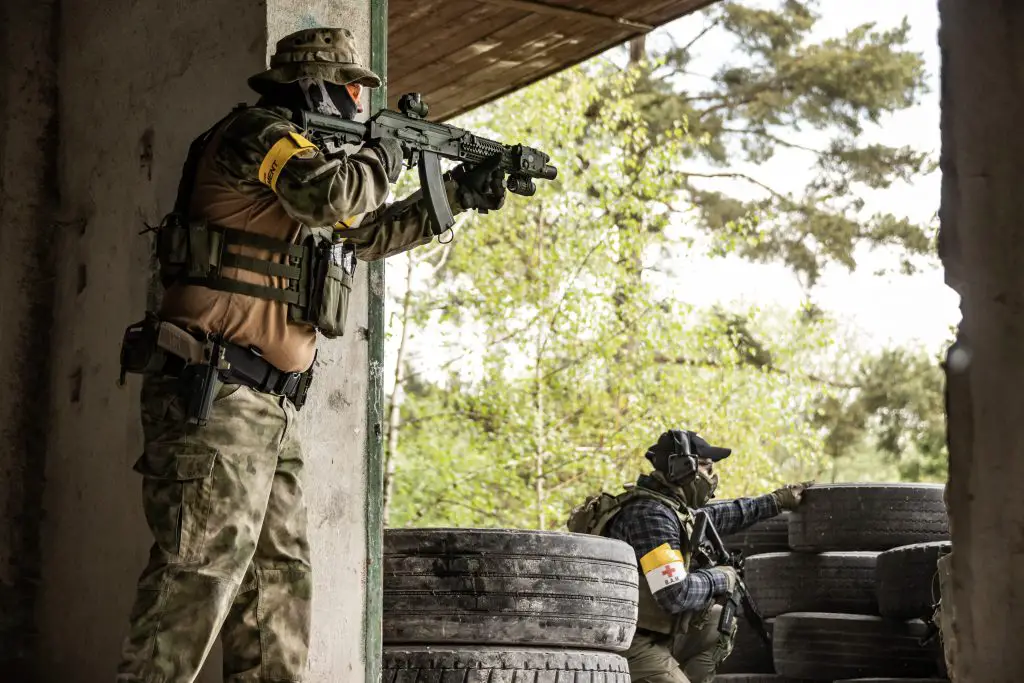
Investing can be complicated at the best of times. Investment during war is particularly complicated. Investment during war creates legal and ethical issues as well as practical ones. With that said, however, sadly, investment during war can simply be a part of life so here is some guidance on how to invest during a conflict.
Keep Calm
This may sound like a trite statement but it’s probably the single most important piece of advice for investment in general. It’s particularly true for investment during war. Assuming you’re outside the conflict zone, investing during a conflict often looks scarier than it actually is.
News headlines are often full of companies scrambling to react to the situation. For example, they may close production operations or cease exporting goods to the area. They may also be put at greater risk of debts not being paid. This will naturally have an impact on their investors.
At the same time, however, modern conflicts tend to be short and markets tend to adjust to them fairly quickly. This means that while there is almost inevitably short-term volatility, over the medium to long term, fundamentals win through. In fact, paying close attention to fundamentals is often what brings investors through conflicts safely.
Stay on Top of Tax
War is notoriously expensive. It can increase costs for governments well outside the conflict zone. Costs are likely to be highest for countries that actively participate in the conflict. They can, however, also increase for countries that don’t, especially if they participate in economic sanctions.
Higher costs tend to mean higher taxes. Given that many people calculate taxes using automated tools (e.g. a Canada tax calculator or an online payroll calculator), it’s important to make sure that these tools are updated to reflect any changes.
If you still prefer using spreadsheets to a proper Canada tax calculator (or an online payroll calculator) then you need to make sure that your formulas stay accurate. This can become challenging so you might want to consider making the switch to proper software tools.
Basically, do whatever it takes to ensure that you continue to file your taxes accurately by the deadline and pay them in full and on time. Tax authorities may be sympathetic to genuine mistakes but making them can create a lot of extra hassle and cost for you.
Forget Trying to Time the Market
Even if you could predict the market with total accuracy, continually trading stocks would probably still work out as, at best, break even. The reason for this is that every time you trade a stock, you will be hit by transaction costs and possibly taxes as well. Buying and holding, by contrast, minimizes these costs.
With that said, it’s absolutely fine to take advantage of volatility to make trades you were going to make anyway. For example, short-term downturns can be great opportunities to grab bargains you know you want. Likewise, upswings can be a great time to divest stock you planned to sell anyway.
The key point to note, however, is that you’re simply doing what your investment strategy indicates. You’re just taking advantage of circumstances to give your portfolio an extra boost.
On a similar note, remember that conflict benefits some business sectors just as it damages others. Resist any temptation to be swayed by short-term performance (either strong or weak). Look at the investment’s long-term performance and think about how it would perform without the conflict. Let that be your guide.
Expect the US Dollar to Be Strong
This isn’t a hard-and-fast rule but it is a good rule of thumb. The US Dollar is the world’s unofficial reserve currency. In times of crisis, people flee to it. To be clear, this doesn’t mean that the US Dollar is going to be rock solid all the time. In fact, realistically, it’s almost guaranteed to fluctuate. Overall, however, you can expect it to be stronger than usual.
Be Ready for High Inflation
Conflict often disrupts supply chains. Firstly, there are the issues caused directly by the conflict. For example, production operations may stop. It may also become difficult (or even impossible) to transport supplies and/or finished goods where they are needed.
Secondly, production facilities, labor, supplies and/or finished goods may all be diverted to support the conflict. Again, this can all apply even if countries aren’t directly engaged in the conflict. For example, people with relevant skills may volunteer to assist where they are needed. This takes them out of their country’s labor pool.
Conflict, therefore, often leads to high (or at least higher) inflation. The standard response to this is to hedge with precious metals, gems and commodities. Right now, the conflict in Ukraine looks like it could have a major impact on the energy sector. This impact might not be felt immediately (as the weather is warming up). It could, however, really bite in a few months’ time.
Diversify (But Don’t Panic)
Having an appropriate level of diversification is an investment fundamental. It applies in the best of times and the worst of times (and everything in between). In times of conflict, there are three asset classes that most investors should generally avoid (unless there is a really compelling reason to buy them). These are:
- Assets with poor liquidity
- Assets that have relied heavily on government intervention
- Assets with poor cash flow and/or poor balance sheets
Furthermore, times of conflict tend to be the wrong times for investors to try to educate themselves on new investment sectors. This applies as much to entering international markets as it does to entering new business sectors such as emerging technologies (or cryptocurrencies).
Most investors should pay heed to the old adage “buy what you understand”. The better you know a sector, the better you’ll be able to read it. In particular, the better you’ll be able to determine what news is short-term “noise” and what news actually has long-term implications.
Always remember that conflicts are temporary. It’s true that the damage they cause often lasts well beyond the actual fighting. In general, however, it is rectifiable and therefore temporary.







